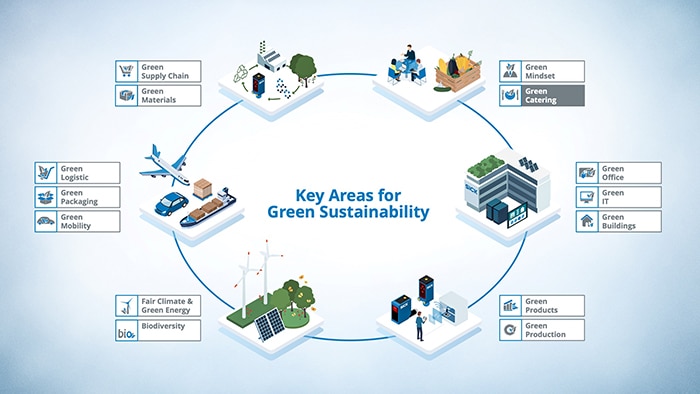Why SICK is taking action
One-third of all greenhouse gas emissions worldwide can be attributed to the food supply: Progress in the transportation sector and the energy revolution do not have the potential to slow global warming to the extent that conscious food choices can. Conventional food production in particular has a negative impact on biodiversity. Seasonal and regional food choices can reduce carbon emissions from the food supply chain by at least 50 percent and increase regional biodiversity. In addition, farming releases fewer greenhouse gases, which is why plant products are preferable to animal products.
Green Catering at SICK
SICK refers to its range of meals as “Green Catering”, which includes not only company cafeterias but also, for example, snack and coffee machines. We emphasize the sustainability and quality of the food we use. SICK prefers to source its food regionally, meaning transport distances are as short as possible, reducing greenhouse gas emissions. When planning the meals in the cafeteria, SICK is focuses on seasonal options. With regional and seasonal products as well as the nearly vegetarian “Green Line”, we are promoting a sustainable eating culture. This not only leads to an appreciation of regional supply and biodiversity, but also reduces CO2 emissions, all the while improving quality and freshness. Our goal is to offer our employees a healthy and sustainable range of meals – without sacrificing taste.
Specific measures that SICK has implemented at individual sites:
- Change to compostable coffee capsules
- Plastic-free teabag packaging
- Increase in the number of water dispensers, leading to a reduction of beverage bottles
- Introduction of reusable glass boxes for takeaway food as a replacement for the old disposable polystyrene boxes
- Serving of organic meat dishes (pilot phase)
